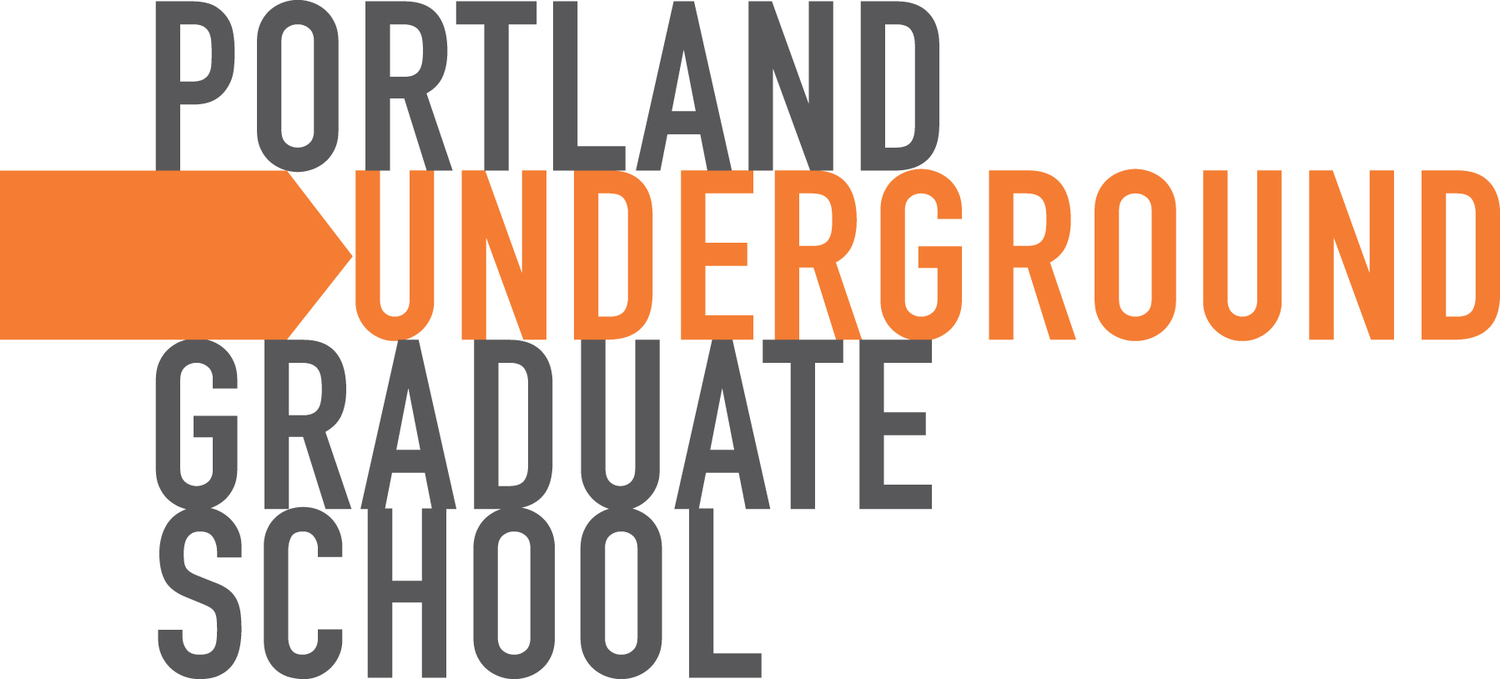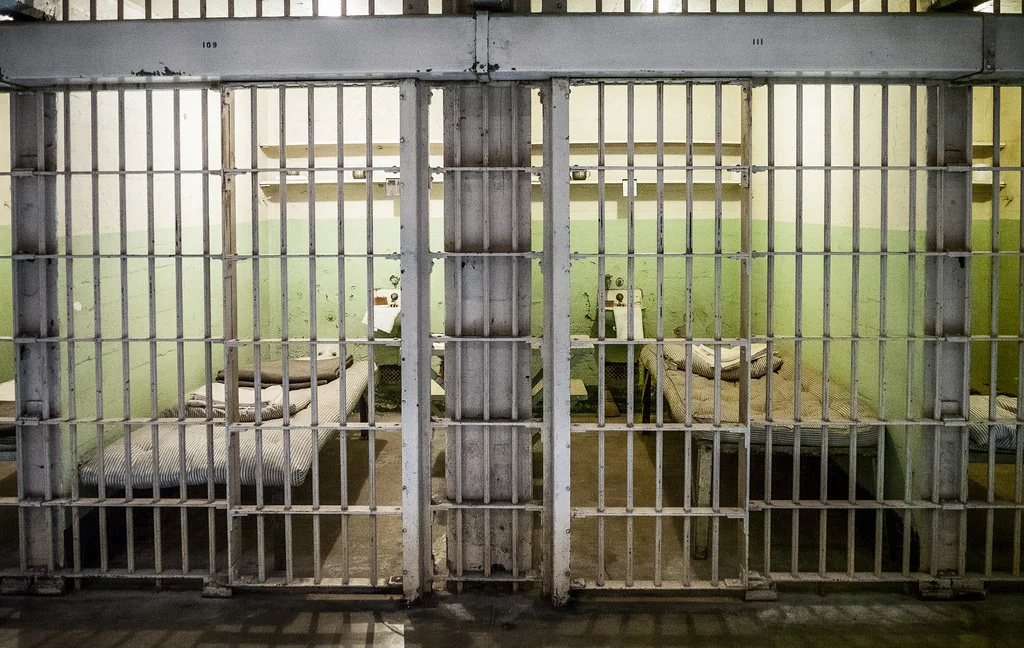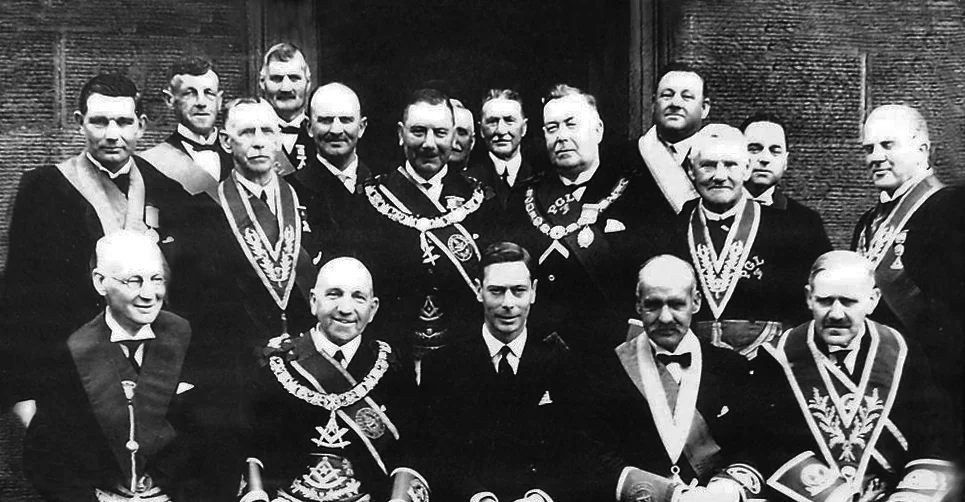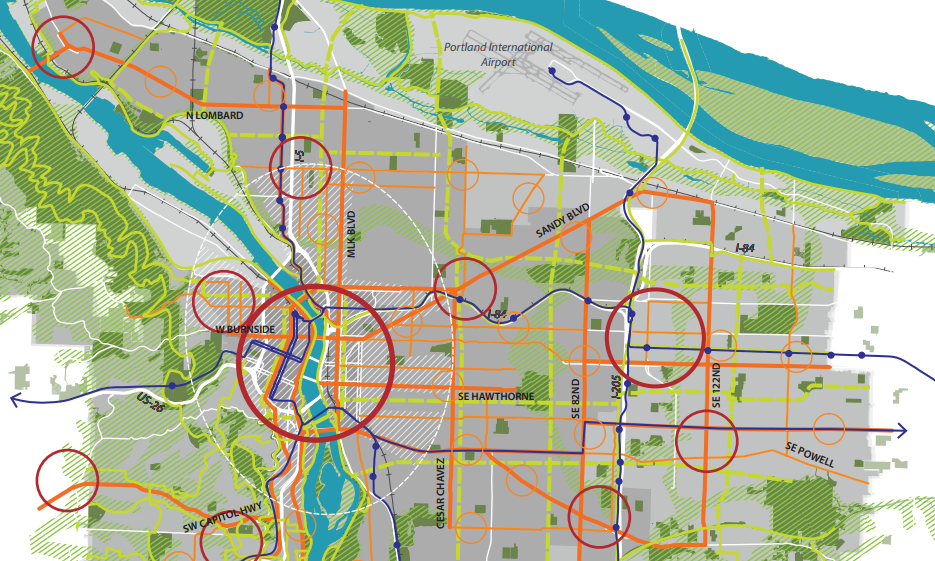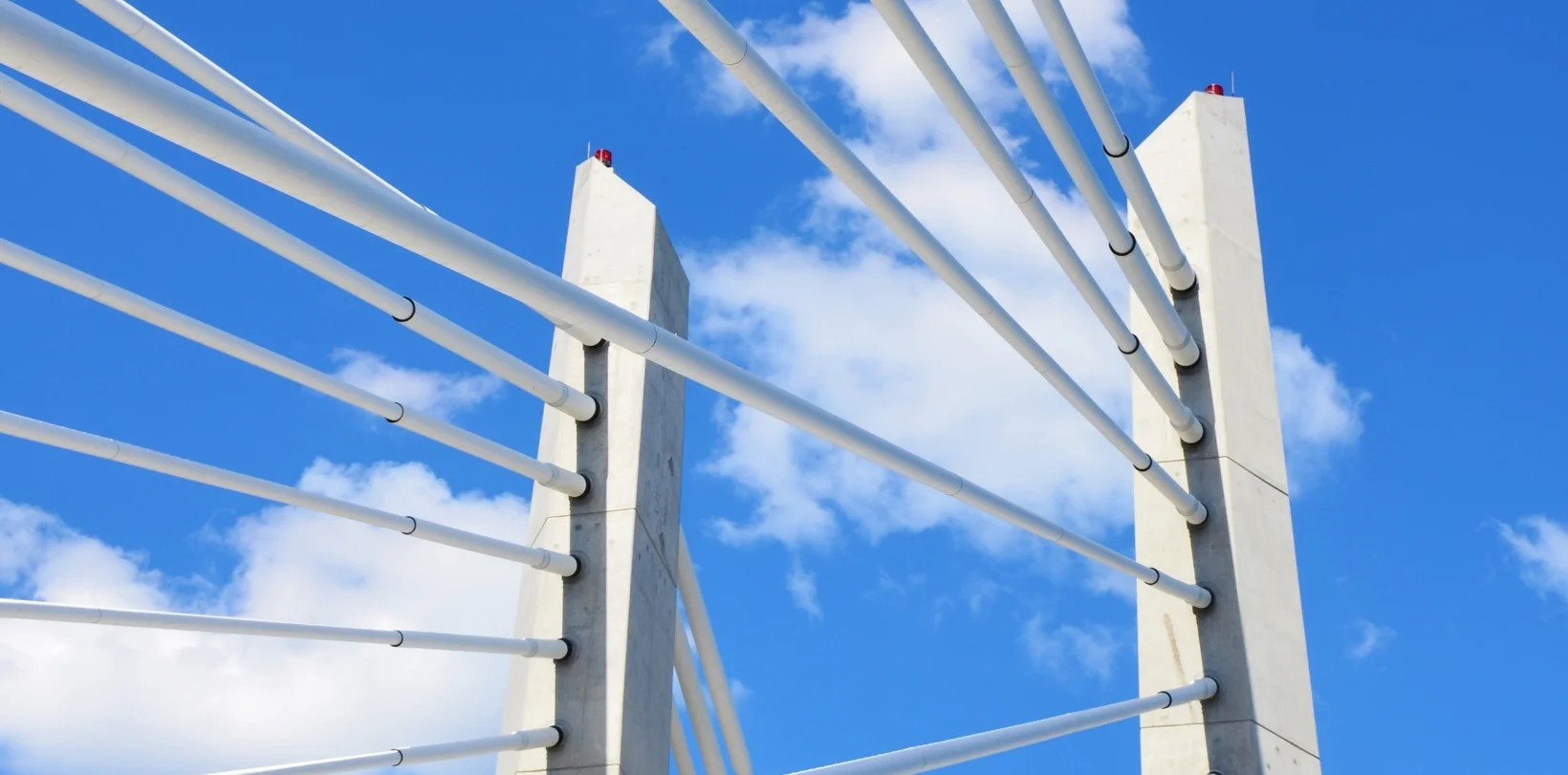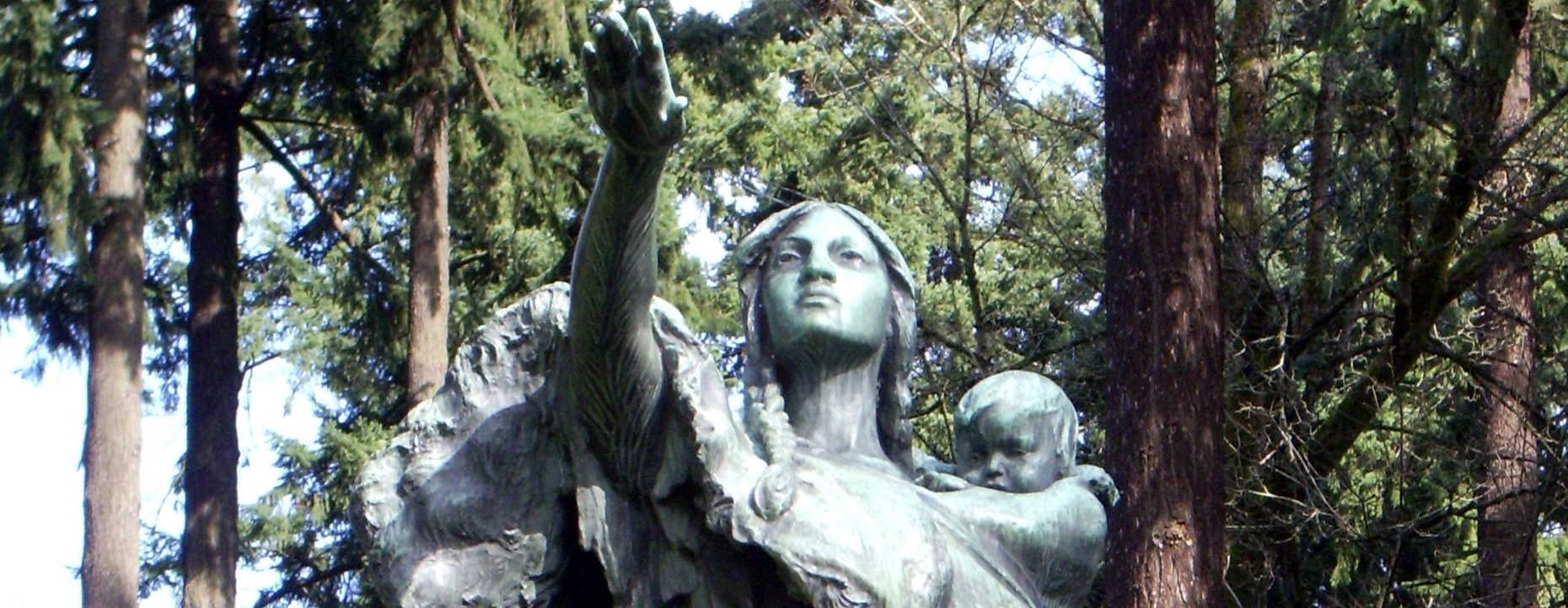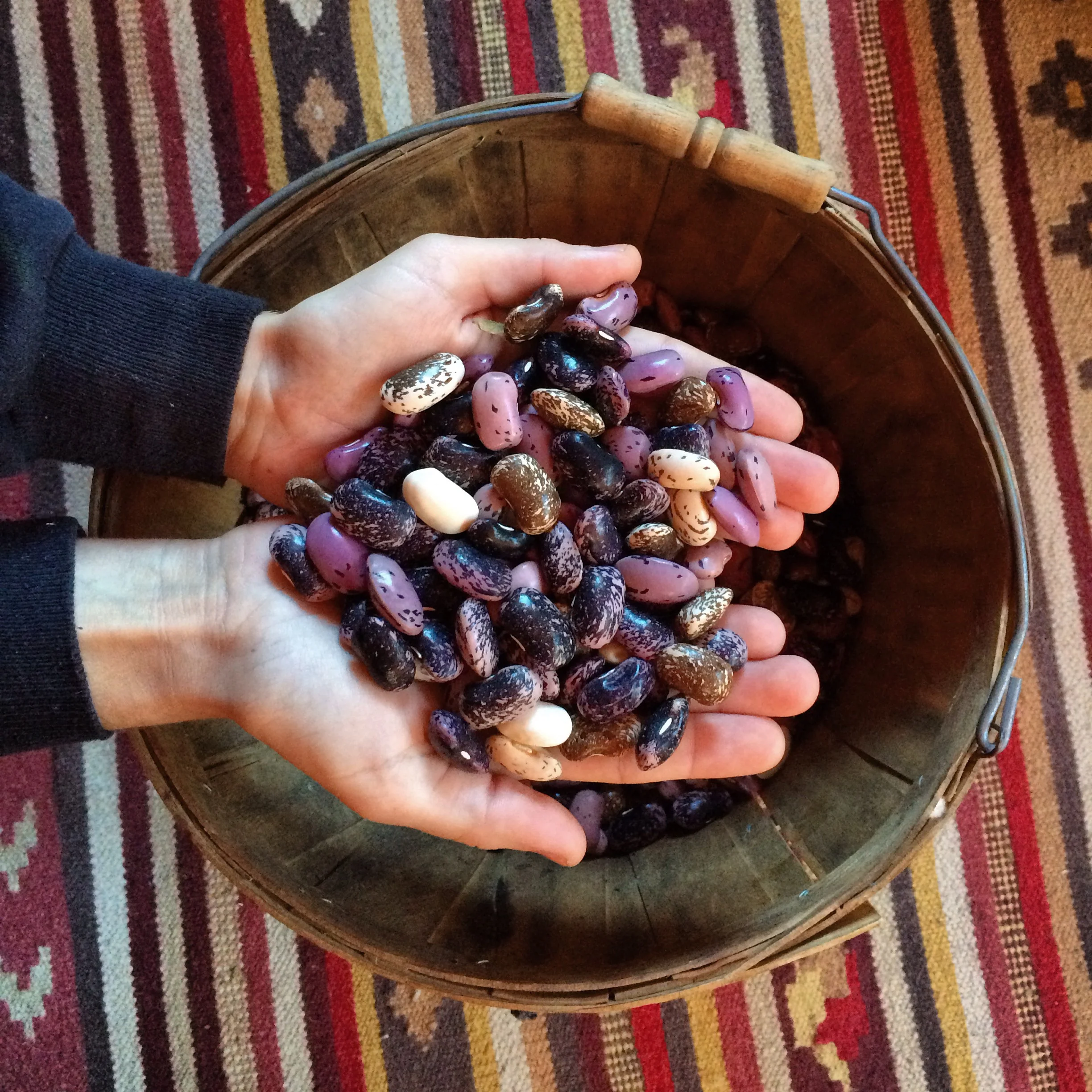Collaborative Visioning and Design with City Repair
In today's cities, finding connection requires intentional design. Join longtime City Repair organizers to learn best practices for grassroots community building that fosters place-based empowerment.
Tools for Developing Accessibility Technology
This workshop provides an introduction to digital accessibility standards and practices and gives participants hands-on experience with assessing, testing, and implementing accessibility practices in the physical and digital realm.
Four Walking Tours of Portland
This course will feature four walking conversations on the built environment of our urban landscape and how Portland came to look the way it does. Leave the course with a richer understanding of Portland’s history of race, class, and urban development and where they all intersect.
Understanding and Moving Beyond the Current Prison Crisis
Mass incarceration is the racial justice issue of our time. The U.S. incarcerates more people per capita than any country in the world, and incarceration rates are acutely and disproportionately concentrated in communities of color. What are we going to do about it?
Tools for Radicals and Futurists
Apps and content, platforms and startups, industry and conventions: we hear a lot about the entrepreneurs, engineers, and companies that shape the digital landscape. But what about the communities who are working all the while to radicalize and transform the world, and to enact power-from-below using digital technology?
Discovering the Roots of Portland's Culture in Its Buildings and Streets
Urban developers, creative entrepreneurs, mobile Americans in general —these days Portland seems to be on everyone's map. Fittingly, many of the deepest reasons for our city's popularity are embedded in its own map. As this course will reveal, Portland's design and structures reflect fascinating historical influences that were ahead of their time.
How to Be an Ally
Deadly police violence against Black men and boys sparked the #BLACKLIVESMATTER movement. But that violence represents a wider problem in American society: the fact that our national consciousness persists in viewing Black males through negative narratives. In this course, we will attack those narratives and ultimately become better allies to Black boys and men in Portland.
How To Make Our City More Equitable and Livable
We live in one of the most rapidly gentrifying cities in America. Our housing costs continue to skyrocket. How did we get here—which communities benefited, and which were decimated—and what does our history tell us about our future? In this course, we'll become more equipped to bring environmental justice to Portland.
An Urgent Conversation, A Renowned Author
Join us as we engage these challenges, facing our history, politics and notions of justice through the lens of America's foremost writer on race, Ta-Nehisi Coates. To read him, to think with him, is to be confronted with pressing moral, cultural, and intellectual challenges. This is a six week course, admission limited.*
How to Be an Ally
Explore issues impacting Native Americans in today's Portland as well as the history behind them, and gain a language for supporting the lives and cultures of Native people.
An exploration of structural racism through data analysis
Structural racism is insidious in two particular ways. First, it is normalized and thus difficult to see, particularly for those who benefit from it. Second, although it is ubiquitous, and most of us believe racism is uniquely and singularly bad, we also see it as separate from us. This causes us to deny or downplay its significance. Big data reveals white supremacy and brings our structural inequities to light. By analyzing data sets from various sources—from online dating sites to scholarly research on the death penalty—we can see these issues in relief.
Find your activist voice
Do you have deep concerns about our social, political, economic realities? Do you want to develop your perspective and be more informed than media pundits and online trolls? You aren’t alone in these turbulent times. Together, we’ll take a critical look at society and find our voices through creative writing, an examination of history and hip hop culture, and dialogue.
Understanding & Moving Beyond the Current Prison Crisis
Mass incarceration is the racial justice issue of our time. The U.S. incarcerates more people per capita than any country in the world, and incarceration rates are acutely and disproportionately concentrated in communities of color. What are we going to do about it?
Do you have deep concerns about our social, political, economic realities? Do you want to develop your perspective beyond reactionary opinions, and be more informed than media pundits and the trolls online? You aren’t alone in these turbulent times. Together, we’ll take a critical look at society, and find our voices through creative writing, an examination of history, Hip Hop culture and dialogue.
Telling Better Stories for a Better Future
Do you want to promote justice and inspire others, but aren't sure how? It starts with telling the right story. Sharpen your communications skills to make meaningful change happen in your own community.
From its foundation as a small, speculative settlement along the Willamette to the current gentrification and redevelopment controversies today, Portland’s urban landscape is ever-changing. Considering race and class in each gathering, this course will feature four walking conversations on the built environment of our urban landscape and how Portland came to look the way it does. Leave the course with a richer understanding of Portland’s history and the ability to further investigate how race, class, and urban development have been shaped into what it is today.
How can we protect our public lands? From the Trump Administration to the Far Right militants who occupied the Malheur National Wildlife Reserve in 2016, our public lands are under threat like never before.
Understanding and Moving Beyond the Current Prison Crisis
The US incarcerates more people per capita than any other country in the world, and incarceration is acutely and disproportionately concentrated among communities of color. This course provides a substantive overview of what has become known as mass incarceration – the dramatic expansion of the US prison system over the past 40 years. Learn about mass incarceration’s history, scope, and impact; its connections to the War on Drugs and the legacy of slavery; and the exciting movements and strategies being deployed to dismantle it.
How to Read and Understand the Built Environment
Portland has been the scene of successive projects intended to shape what it means to be a modern American city. This course features 4 walking conversations on our urban landscape and how Portland came to look the way it does.
How have African American poets elegized victims of lynching and state violence? How have they celebrated acts of resistance? We study poems that bear witness to histories of violence visited on black bodies. Explore their literary mastery and the ways they expose and resist violence and mass incarceration. Reflect on how contemporary works revise elegiac tropes in response to the persistence of racist violence and the rise of Black Lives Matter.
The human story begins 3 million years ago, but written history dates back a mere few thousand years. This course will take us to the brink of what we know and what we don’t. The evolution of physiology, technology, and culture are frames for examining prehistory to ponder who we are, where we've come from, and where we need to go.
Freemasons, the Illuminati, the Priory of Sion, the Klu Klux Klan: why do secret societies remain such an enigma? From the mystery schools of Ancient Greece to the hidden rituals of the Skull and Bones, these organizations are often the subject of wild speculation, conspiracy theories, and legendary histories. Explore centuries of pseudo-history and misinformation to learn the true history of these mysterious organizations, both real and fictitious. Explore the role of secret societies in politics, religion, and history; their many different roles in public and private life; and the complex dynamic between them and general society.
Who's tracking you on the Internet? With the rise of privacy concerns in digital spaces, encryption technology has become an increasingly important modern topic. But the practice of secure communication, and the practice of trying to break it, have been around for centuries. Come examine the origins of cryptography, from Caesar ciphers to modern day techniques and even learn some basic crypto methods that can be done by hand. More importantly, learn the principles of cryptography and digital privacy to protect your data more securely.
Donald Trump did U.S. citizens a favor in 2016, by surfacing the core tensions in our dominant culture: gender + race hatreds, class privilege, class war and corporate impunity. We are now living in a moment of opportunity to better redress the widespread hurt in our society and to talk across our differences. Together, we can figure out actions to heal this "abscess."
Join us for 4 weeks of exploring what it means to be different in white spaces. We'll discuss our racialized history and concepts of white accommodation and what normativity. The class will examine the rolw psychology might play in creating our own healing space, ultimately enabling us to thrive in white spaces.
Originally, intersectionality explored the intersections of individuals’ experiences with inequality based on their race, gender, class, and sexual orientation. Today, intersectionality is a framework we can use to think about many other identities, including spirituality and physical ability. It’s a way of looking at the world that helps us understand the multidimensional ways in which people experience life. This course gives you the tools to understand the complexity of dimensions that make up who we are perceived to be.
Make a significant contribution to Social Justice by winning concrete change at both the local and systemic levels. Learn the principles of Direct-Action Organizing: how to mobilize the grassroots to carry out effective campaigns that win. This course will cover the history of Organizing in America (and in Portland) while de-centering the Whiteness that has historically accompanied it. Participants will sketch and plan out their own idea for a Direct-Action Organizing campaign.
Most Portland renters don't know their legal rights. Gain an understanding of issues such as no-cause evictions, deposits, repairs, rent increases, and applications. Learn the basic tools and best practices to protect the rights you have; learn how to teach these to other people. Share strategies for collective action to change the laws that prevent tenants from finding and maintaining safe, stable, and affordable rental housing.
The official city planning process is often slow, opaque, and expensive. Tactical Urbanism is a fast, visible, and cheap strategy for changing the way that humans experience and interact with shared public spaces. In this course, you'll learn about projects that have been implemented in Portland and beyond, and apply what you’ve learned to design your own tactical urbanism project.
Technology allows historically marginalized people to share their experiences with massive audiences. The two big issues this class explores are how online media impacts evolving gender norms and how design of social media platforms impacts who participates in online conversations. We explore gender- and race-based harassment online, discuss changing conceptions of privacy, and look at how political activists use social media to push for change.
This is a survey of black history in Oregon. We'll go from the earliest explorations through the wagon train and statehood eras down to the creation of the contemporary Portland black community in the mid-20th century, including the effects of gentrification on the black community. Topics include: pioneer-era racial policy, black exclusion laws, white affirmative action, Jim Crow practices, the KKK in Oregon, and relationships between Oregon police and black communities.
Understanding that you have privilege doesn't mean you understand what to do about it. Ignoring your privilege, however, allows racism and other -"isms" to thrive. This class is designed to help you be a better, more effective ally, especially if you're feeling stuck and ineffective. This class will help you understand, identify, and interrupt implicit bias and white fragility, mechanisms that keep privilege in place.
Want to talk about critical national issues in a safe space? This class is a dialogue about the history and legacy of race relations in America, which we will explore via the work of Ta-Nehisi Coates. Coates is the author of Between the World and Me, which looks at race in America. It won the 2015 National Book Award for Nonfiction and the 2015 Kirkus Prize for Nonfiction. Coates is a national correspondent at The Atlantic and a 2015 recipient of the MacArthur Fellowship. He writes with a bracing honesty about slavery, housing discrimination, the fear and control of black bodies, and the racialized roots of American wealth. Coates' work in The Atlantic, along with responses from The National Review, will be the basis of our inquiries and discussions.
Our food system is corporatized, industrialized and globalized. The local, non-GMO and organic food movements lead the charge to affect policy change, yet often exclude a critical discussion of social justice. Inclusive change requires overlapping efforts of the social and food justice movements. This class examines how these movements are intrinsically linked, focusing on jobs, labor, structural racism and socioeconomic disparity. We’ll explore how we can cultivate an equitable and fair food system by breaking down barriers, challenging conventions, and redefining the way we think about food.
Whether drawing on Marxism, feminism, psychoanalysis, or a general social justice orientation, critical psychologists show that mainstream and pop psychologies tend to reinforce the injustices of the societal status quo. Critical psychologists instead push for a psychology dedicated to radical social transformation. This course is an overview of critical psychology, and it serves as an introduction for those who may want to go on to pursue some of these threads more deeply.
Learn the basics of criminal law and procedure in this 4 week mini-law school course. In the first two weeks, you'll learn how to think like a lawyer, learn how to brief a case, and experience the famous law school "Socratic method". In the last two weeks, you'll learn fundamental Constitutional principles and how criminal justice really works from a former prosecutor and law professor. Know your rights, be an informed citizen.
What is this concept called privacy? We’ll look at the history of privacy law in America, discuss how those foundational principles hold up in the modern age, and delve into the world of corporate information gathering and massive government surveillance. What is "privacy" in the modern age and should the law protect it? If so, how? How does it relate to changing definitions of selfhood? How do other cultures view privacy?
Learn how and why Portland has developed into the physical and cultural city it is today. Examine how and why cities change, looking specifically at urban economics and Portland's oft-debated urban environment. Consider land use planning in Portland, look at an overview of development trends, and get a grasp on the economics of Portland's real estate development.
Portland is home to one of the finest, most diverse, and best preserved assortments of architectural specimens in the nation. In addition to the 19th century cast iron structures, Portland also houses two of the most important 20th century buildings in the world: Pietro Belluschi's Equitable Building and the much maligned Portland Building by Michael Graves. Learn about local architecture as well as explore concepts in the field and its evolution over the last 200 years.
From its tenuous and humble beginnings as a frontier outpost on the western fringe of the continent to its current status as media darling and the most popular city in America to relocate to Portland has had a colorful, varied and often tumultuous history. This course will examine various aspects of that rich history.
Native Americans face tricky sociopolitical and structural inequities in today's Portland. What does it mean to be an ally? Explore the issues impacting Native Americans, the history behind them, and gain a language for supporting the lives and cultures of Native people. This experimental, silly, and interactive class will crush stereotypes and raise hell. In a fun way! You will finish this course better informed and equipped to be part of a better future for Native Americans.
How can understanding systems of equity and ecology help us create more nourishing relationships with the land, our limited resources, and each other? Use systems thinking to explore critical oppression studies and ecological literacy in the context of food. Look outward to understand structural systems of oppression and their effects on relationships, and inward to understand how our identities impact who we are in the world—and how that empowers us to work towards our visions right now.
Understand Identity to Become a Better Ally
Taught by Basic Rights Oregon
Transgender people face discrimination and danger unlike any other marginalized community. Learn key concepts and understand how trans identities intersect with the LGBT and POC communities to become a better ally.
